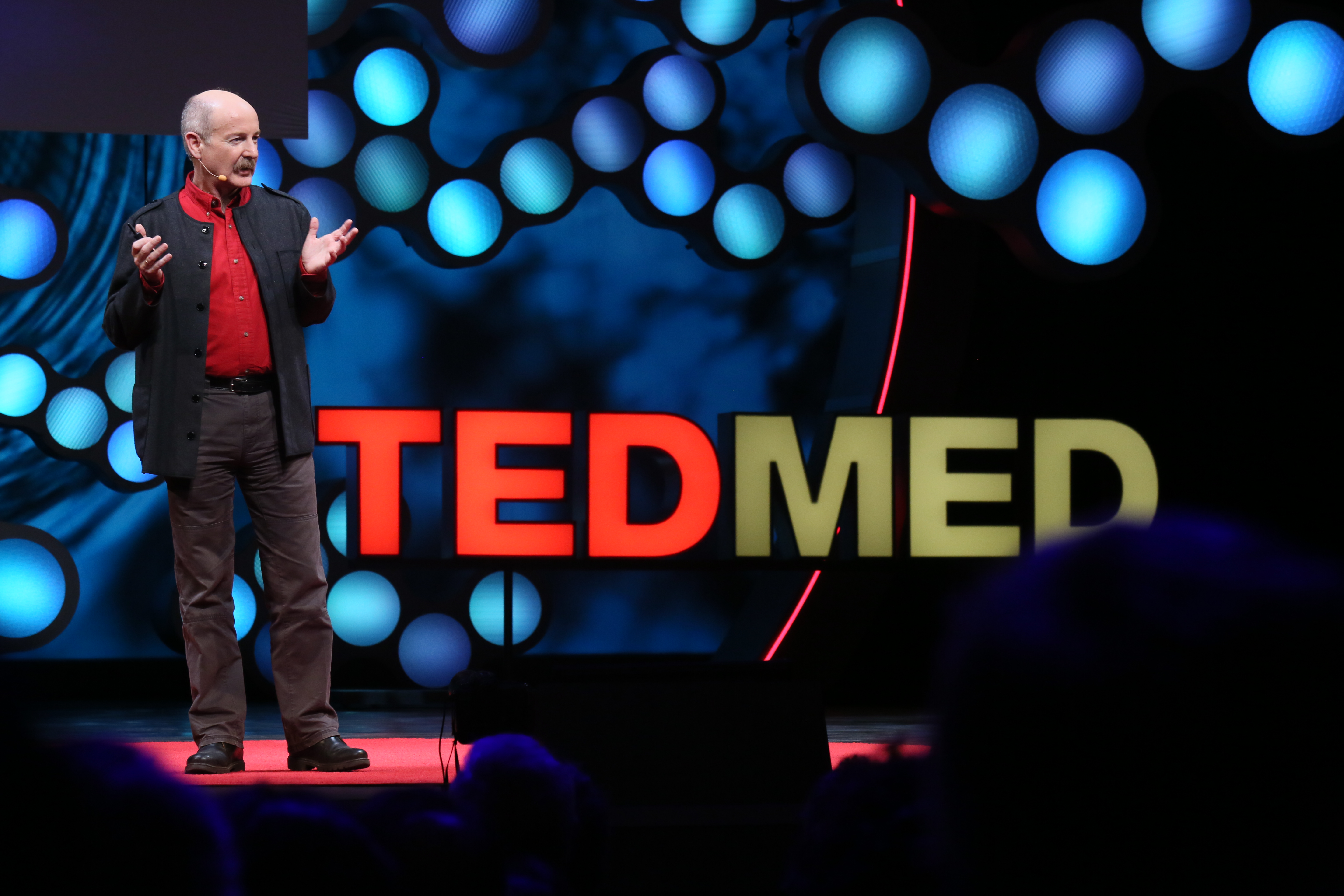
photo courtesy of TEDMED
Earlier this month, President Obama announced a proposal to fully map the activity of the human brain. The initiative would aim to better understand both the brain and the often-mystifying conditions that affect it, including Alzheimer's, autism and stroke, among others, the Associated Press reported at the time.
"As humans we can identify galaxies light-years away," Obama told a group of scientists at the White House for his announcement, according to the AP. "We can study particles smaller than an atom, but we still haven't unlocked the mystery of the three pounds of matter that sits between our ears."
One of the key players behind the scenes of this brain-mapping plan is Rafael Yuste, a professor of biological sciences at Columbia University, whose work is credited with helping to launch the project. Yuste presented at the opening night of the 2013 TEDMED conference in Washington D.C. this week.
Despite criticisms that his goal is an impossible one, Yuste told HuffPost after his presentation that he thinks it's not only possible, but imperative. Right now, he explains, scientists focus on either the whole brain (by looking at, say, an fMRI scan) or individual neurons. The latter, he said in his talk, is like trying to watch a movie when you can only see one pixel. This approach, he asserts, is flawed and focuses on the wrong level -- in order to understand the brain, we need to find somewhere in the middle, by measuring the activity of all of the brain's neural circuits.
At this point, he says, his work with the brain mapping initiative is over -- but his research certainly isn't. HuffPost Healthy Living caught up with Yuste at TEDMED, who shared five things we might not know about our gray matter:
The brain might not be as complicated as we think.
"Most people think of the brain as very complex, but I think we're just ignorant. It could be very simple," he says. "The idea has permeated that there's something magic inside the brain, but really it's just a firing of neurons."
Human brains probably aren't that different from other brains.
Think human brains are far more sophisticated than those of the rest of the animal kingdom? Think again. Our brains probably aren't that different from that of a fly or a mouse, he says. Twenty years ago, for instance, we didn't know that much about how the human body developed -- as we've learned more, we've discovered that our genes aren't that different from flies. "Nature, at the end of the day, is using the same tricks across evolution," he says. "The brain is robust, it cannot be too complicated."
We don't only use 10 percent of our brains.
"Every part of our brain is always active all the time," Yuste says. The brain is comprised of tens of millions of neurons that are always firing (meaning the oft-repeated "fact" that we only use 10 percent of our brains isn't true). "Some people think the brain is like a computer," he says, where it sits there doing nothing until you stimulate it. In reality, the brain is always going, even when we're sleeping. "It has a life of its own," Yuste says.
The argument for a brain-mapping initiative isn't that different from the Human Genome Project.
We recently celebrated the 10th anniversary of the completion of the Human Genome Project. But it wasn't that long ago that people never would have thought such a lofty goal was even possible. Yuste sees a parallel to the brain-mapping initiative: Detractors argue that it's impossible to collect the data, and even if you could collect it, no one could ever understand it. They ask: Will it work? And will it be worth it? Yuste firmly believes the answer is yes. "Society has so many problems that science cannot afford to dream small dreams," he said during his TEDMED presentation.
No one understands how the brain works.
"I can guarantee you that we don't have a clue," Yuste says. At least not yet.
